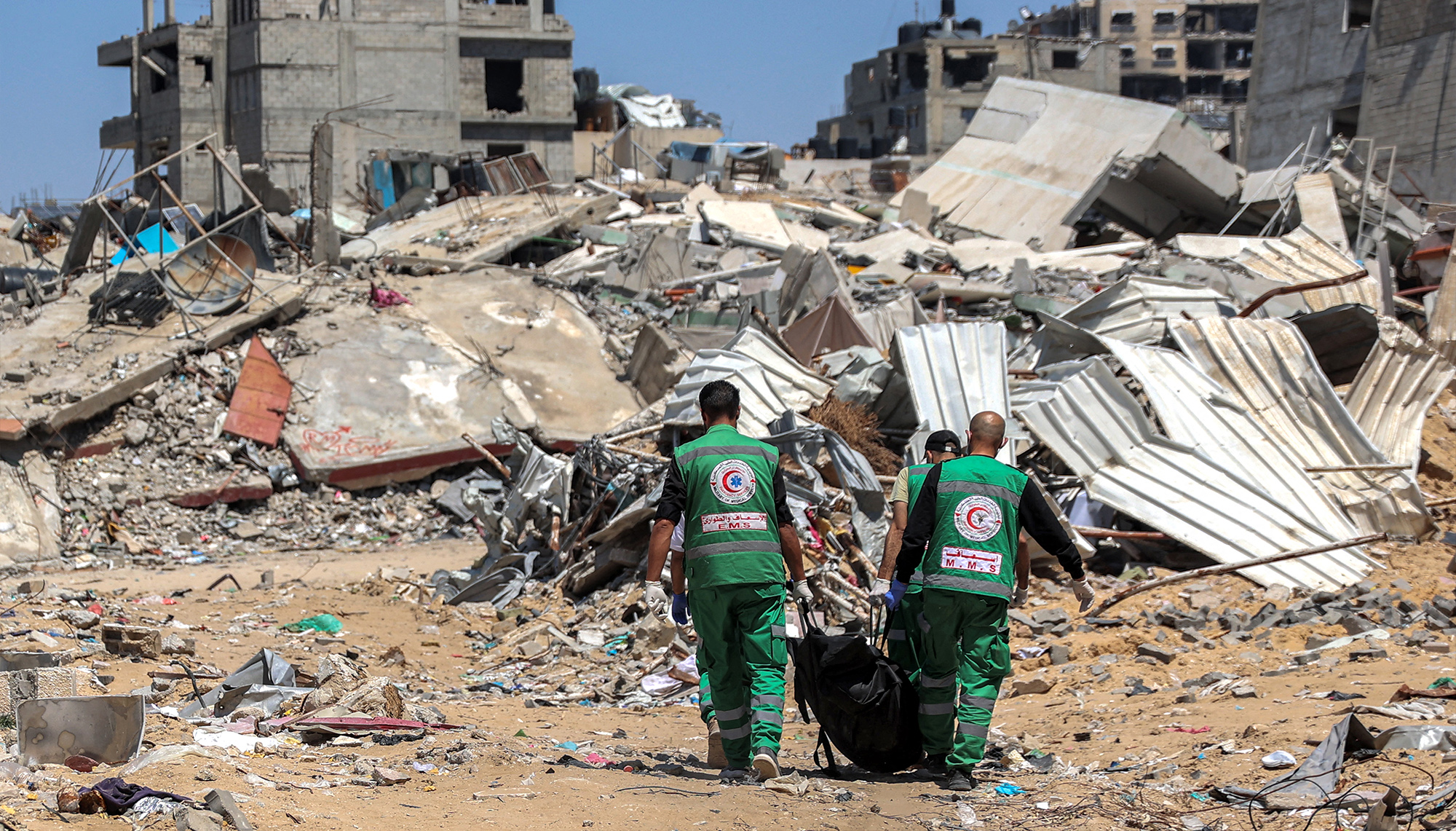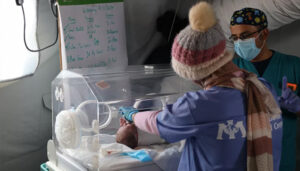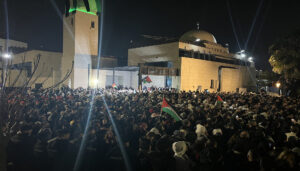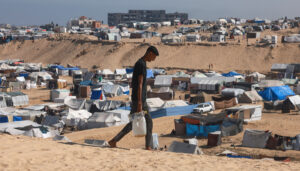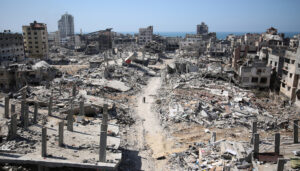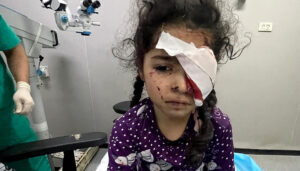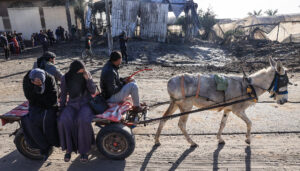إبراهيم أبو عودة (أبو علاء) 60 عاماً، أحد سكان بيت حانون. عايَشَ هو وعائلته، المكونة من أبنائه الخمسة المتزوجين وعائلاتهم، نزوح سكان بلدة بيت حانون “إلى كل مكان قريب وآمن يمكن للناس الاحتماء فيه” حسب قوله.
يسكن أبو علاء وعائلته عمارة مكون من ثلاثة طوابق يحوي كل طابق شقتين، ويأوي المنزل 33 فرداً منهم 21 طفلاً. يصف ما مرّت به العائلة أثناء القصف الإسرائيلي لبيت حانون: “كنا جميعاً في الطابق الأرضي، هاربين من الطوابق العليا المعرضة للقذائف وكنا في آخر أيام رمضان، سمعنا انفجارات كبيرة في أنحاء البلدة والمنطقة المحيطة على مدار الليلة. في الصباح اشتد القصف وأصبح عنيفاً جداً وعشوائياً، سمعنا صراخ الجيران وشاهدنا بعض منازل الحي قد أصيبت بقذائف مباشرة، مما دفع جميع سكان البلدة للهروب بحثاً عن أماكن أكثر أماناً، تاركين خلفنا كل ما نملك”.
لجأ وعائلته إلى مدرسة ذكور جباليا الإعدادية في مخيم جباليا، حيث الظروف المعيشية تفتقر لأدنى مقومات الحياة والحاجات الإنسانية البسيطة. وبعد حوالي أسبوعين من اللجوء وفي أول تهدئة إنسانية، تمكن بعض سكان بلدة بيت حانون بما فيهم أبو علاء وابنه عليوة من الدخول للأماكن البعيدة نسبياً عن أماكن تواجد جيش الاحتلال. يضيف أبو علاء “دخلت حارتي أنا وابني وبعض الجيران، فوجدنا منظراً مرعباً، البيوت مهدمة على بعضها ولا يمكنك تمييزها، ظننت للحظة أن منزلي قد دمر ولكن حالما تقدمنا رأينا أربعة منازل فقط لم يتم تدميرهم بشكل كامل وكان بيتي أحدهم وقد تضرر المنزل بسبب شدة عنف القصف المتواصل على البلدة لأيام متتالية”. ومع إعلان التهدئة الأخير هذا الأسبوع لمدة ثلاثة، عاد أبو علاء مع بعض أفراد عائلته ليضيفوا لون الحياة للون حارتهم الرمادي، وليتعايشوا مع ما تبقى من منزلهم المدمر وركام الحارة، لأن “عيشة المدرسة مش عيشة”، بحسب قوله. العائلة الآن في حالة ترقب لما ستؤول إليه الأمور بعد انتهاء فترة التهدئة.
Ibrahim Abu Odeh (Abu Alaa), 60 years old, lives in Beit Hanoun, Gaza. He was forced to flee his house with his family, along with the residents of Beit Hanoun who ran in search of “anywhere close, safe, and provides shelter”.
Abu Alaa lives in a three-story building that has six apartments, occupied by his five married sons and their families, 33 people in total, 21 of them children. “We were all gathered on the ground floor,” he says, “to escape the top floors that are more vulnerable to shelling. We were in the last days of Ramadan, we heard heavy explosions all over town and the surrounding areas. The next morning, the shelling got stronger, we heard the neighbors shouting and we saw houses around us hit directly by missiles, which forced everyone to flee in search of safer places, leaving behind everything we own.”
Abu Alaa and his family took refuge in the Jabalya secondary school for boys, in the Jabalya refugee camp, where he said living conditions lacked most basic human needs. After two weeks there, and at the first humanitarian cease fire, some of Abu Hanoun’s residents, including Abu Alaa and his son Alewa, were able to get into the neighborhood. “We found a horrific sight,” he says. “Houses were destroyed on top of each other and you couldn’t tell them apart. I thought at first that our house was ruined but as we moved forward we saw four houses that partially survived, ours was one of them.” The house was severely damaged from continuous shelling for days. Last week, Abu Alaa and some of his family members returned to the house again, “because living in the school is no life,” he says. Now the family is just waiting for what will happen after the seize-fire.
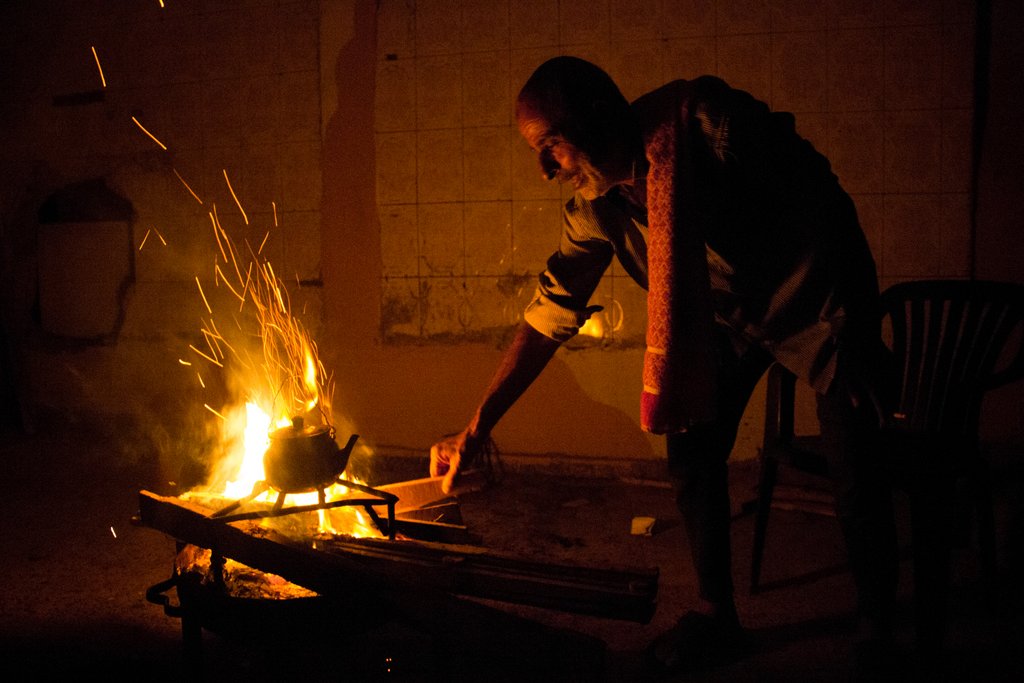
Abu Alaa makes a fire to prepare tea for the family because there is no gas in the house after the shelling of Beit Hanoun. August 11, 2014
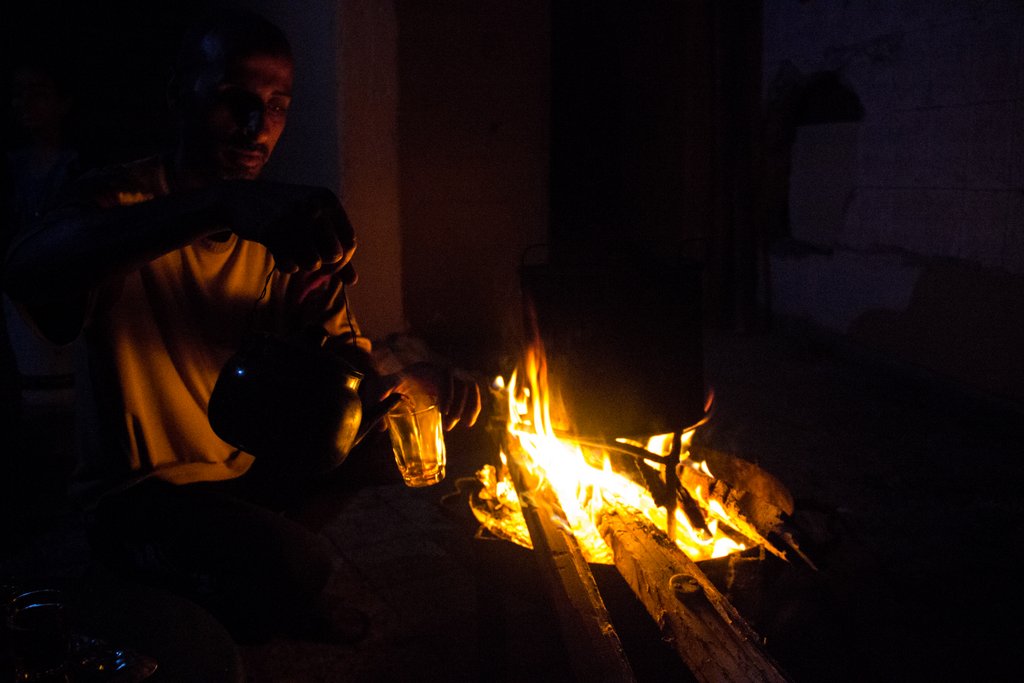
Alewa Abu Odeh, 34, pours some tea for his family members gathered around the fire. August 11, 2014
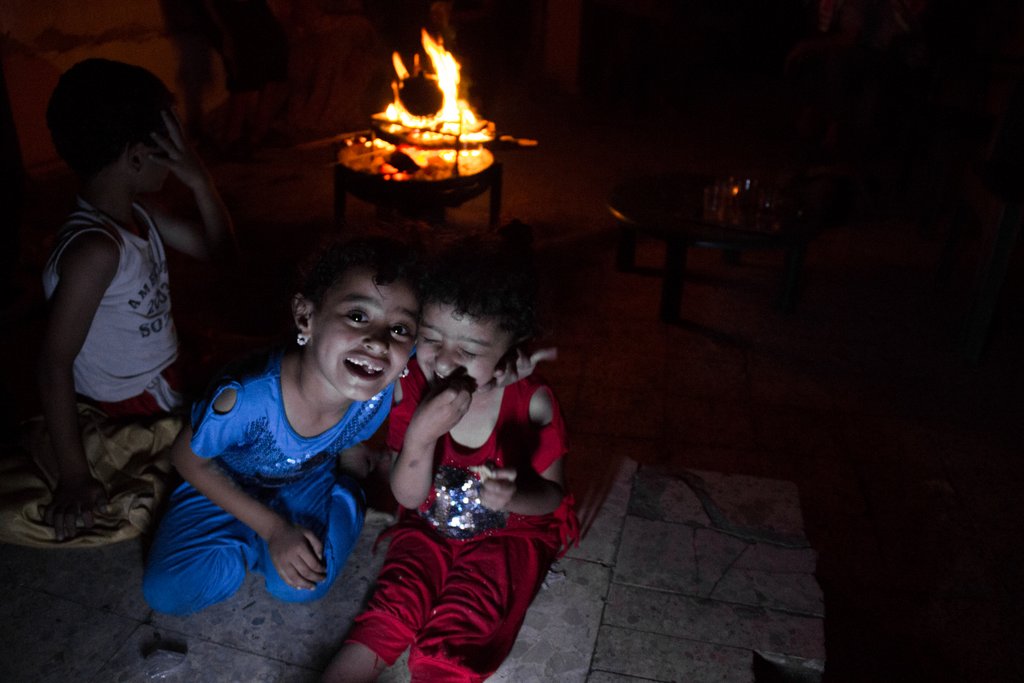
Hadeel Abu Odeh, Alewa’s daughter, 3 years old (right) and her sister Randa, 5 years old (left).
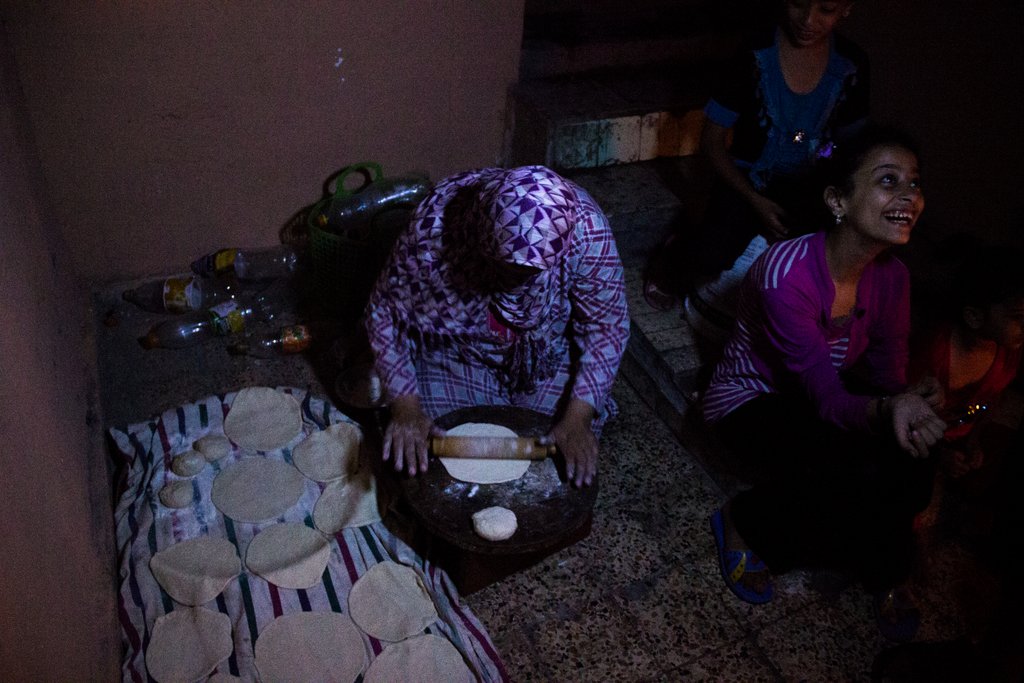
Alewa’s wife prepares dough to bake bread for supper. August 11, 2014
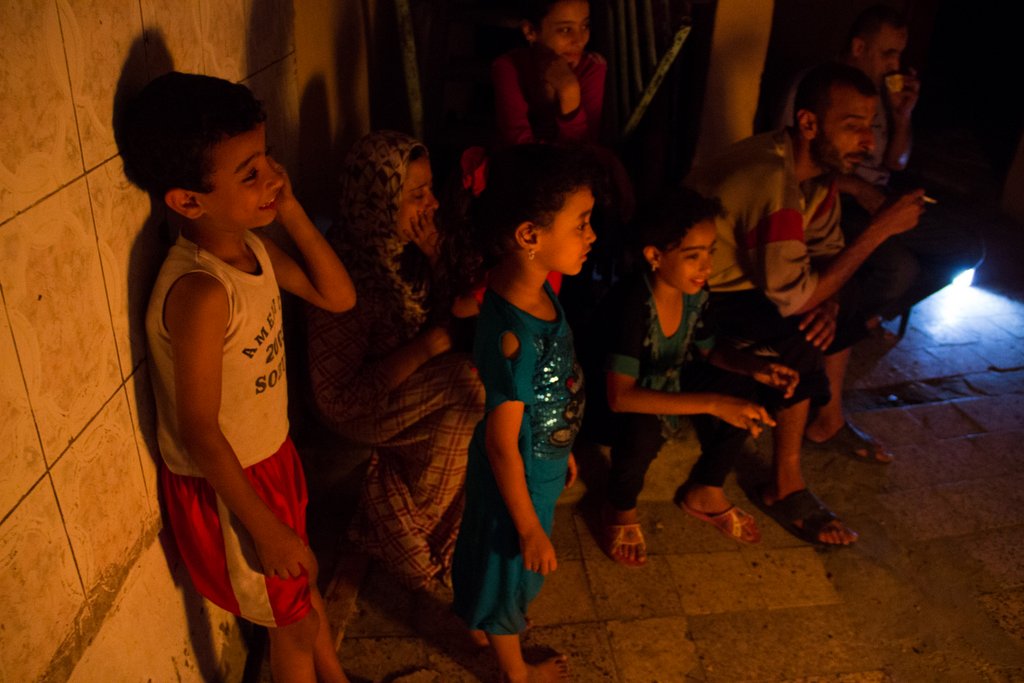
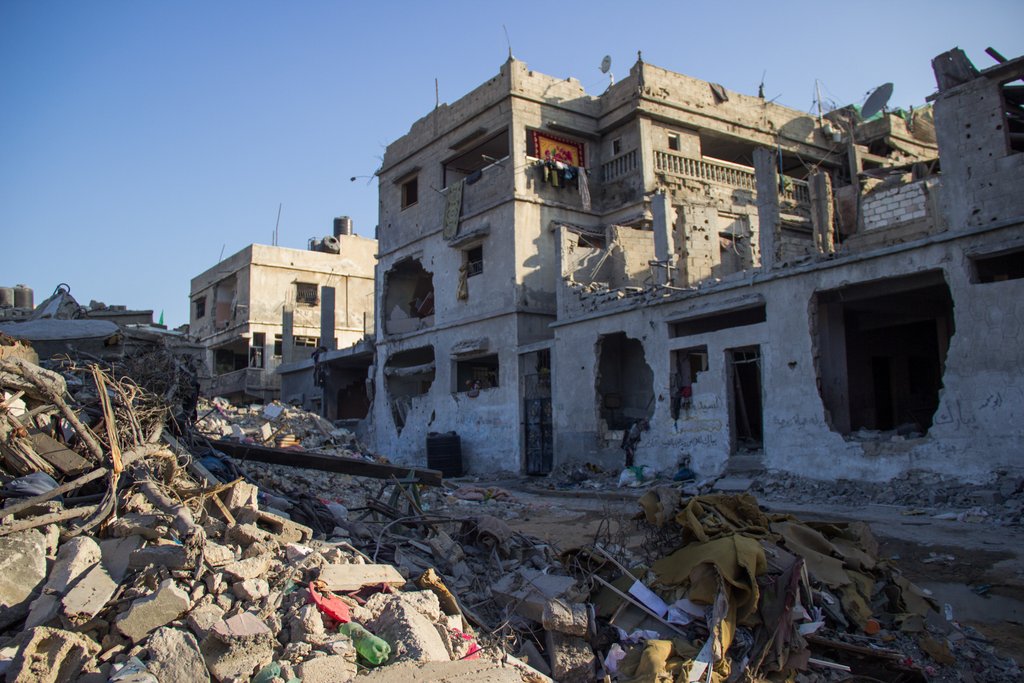
Abu Odeh’s house appears in the middle, with a damaged facade.. August 12, 2014
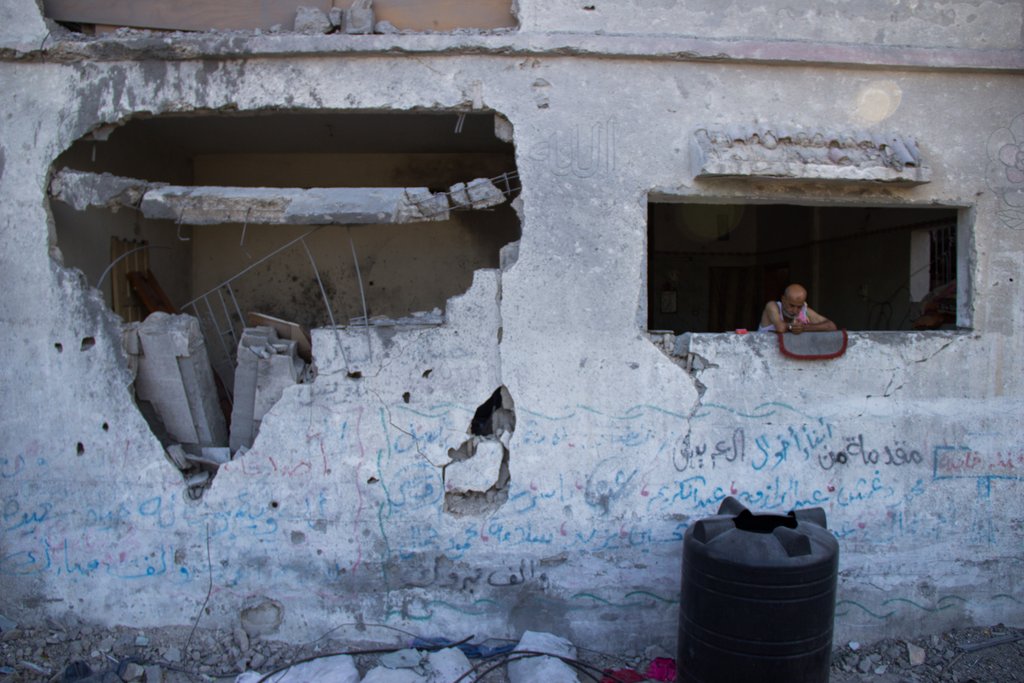
Abu Alaa stands at his window in the early morning examining what’s left of his neighbourhood. Next to him is one of the rooms of his house, completely destroyed. August 12, 2014
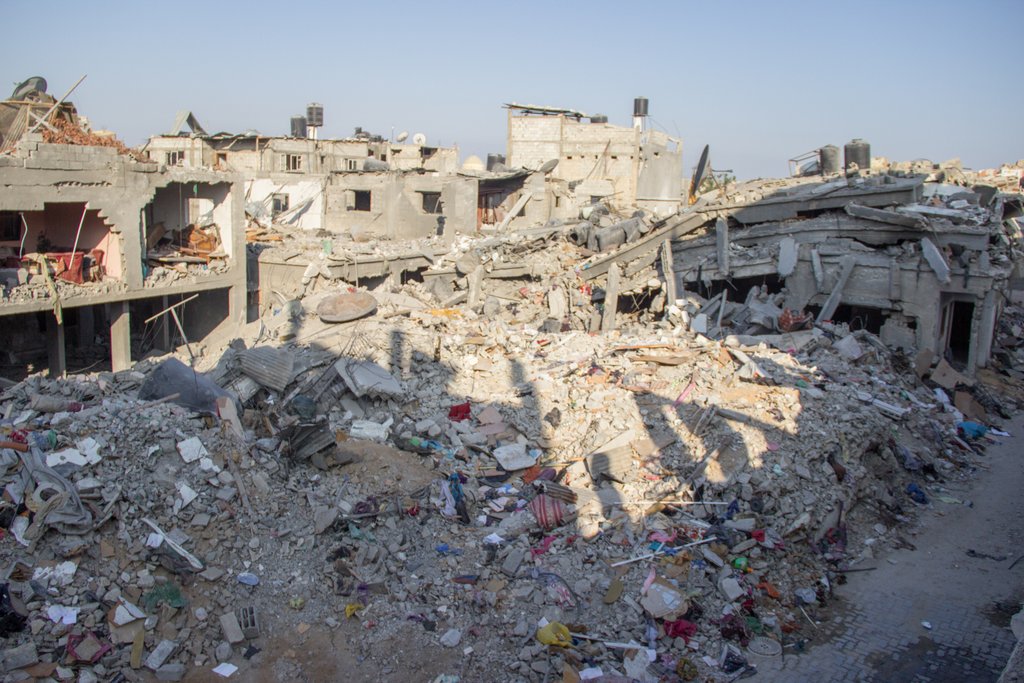
Abu Alaa stands at his window in the early morning examining what’s left of his neighbourhood. Next to him is one of the rooms of his house, completely destroyed. August 12, 2014
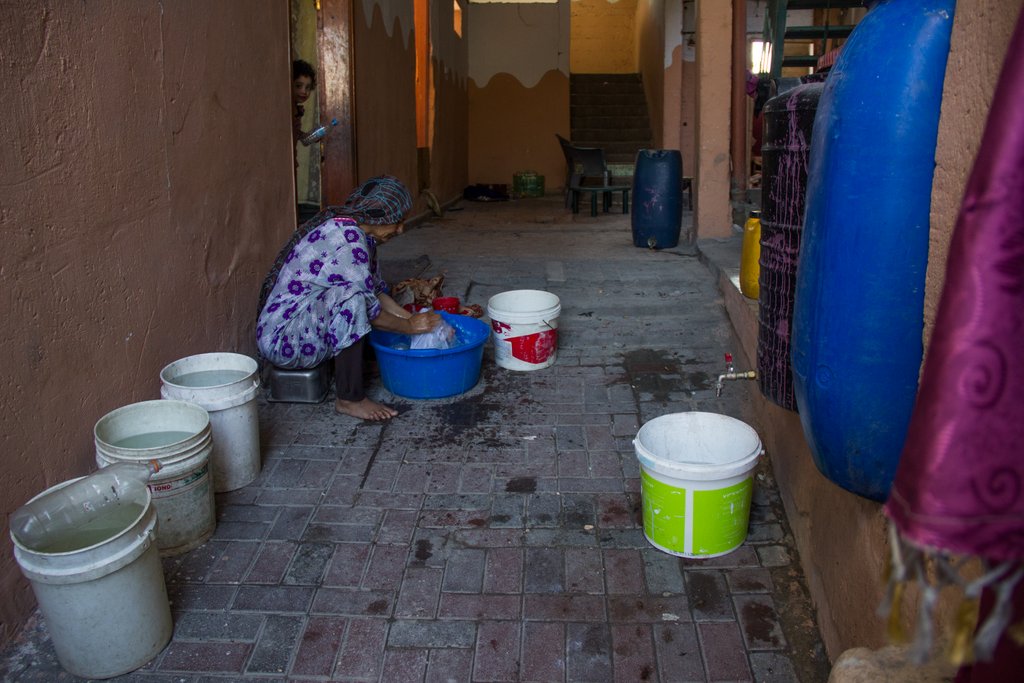
Abu Alaa’s wife, Um Alaa, hand washes clothes because there is no electricity in the house. August 12, 2014
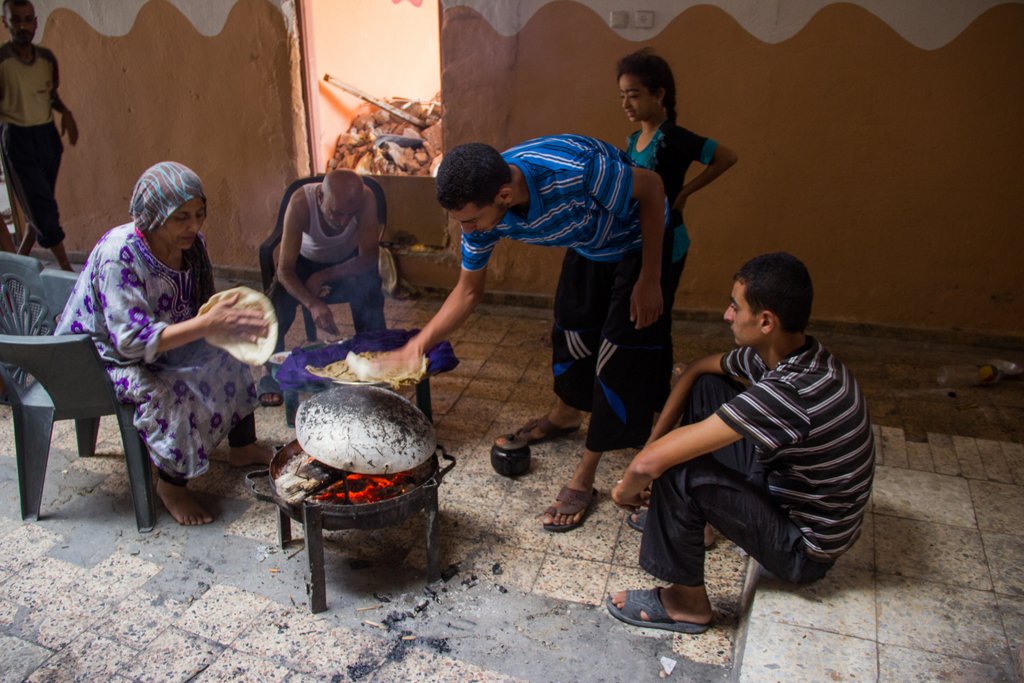
Um Alaa bakes while family members wait for breakfast to be ready. August 12, 2014
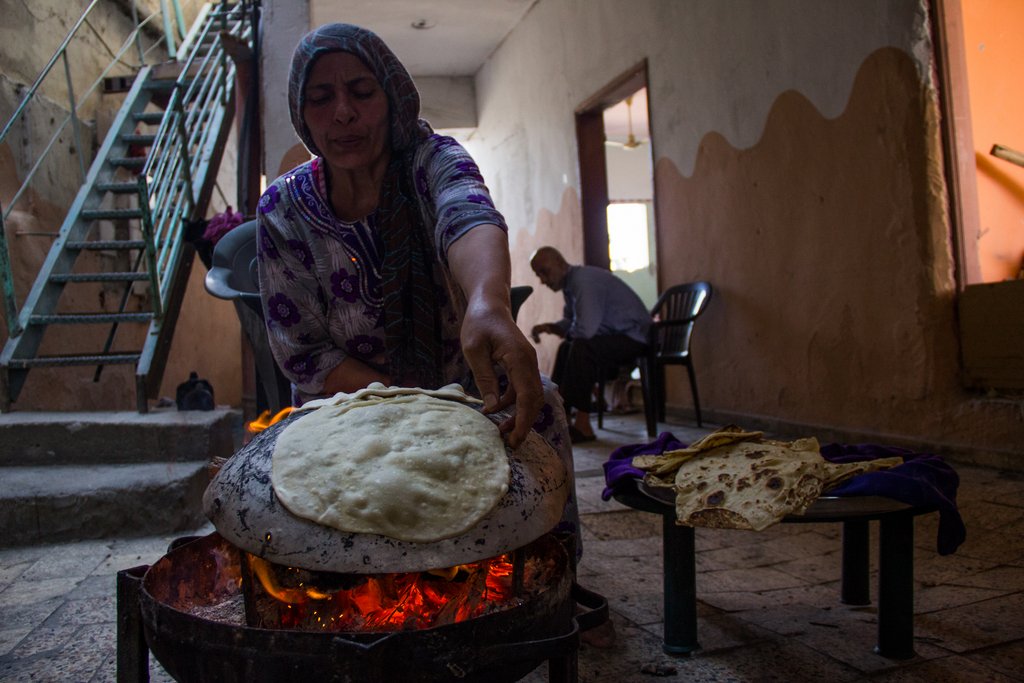

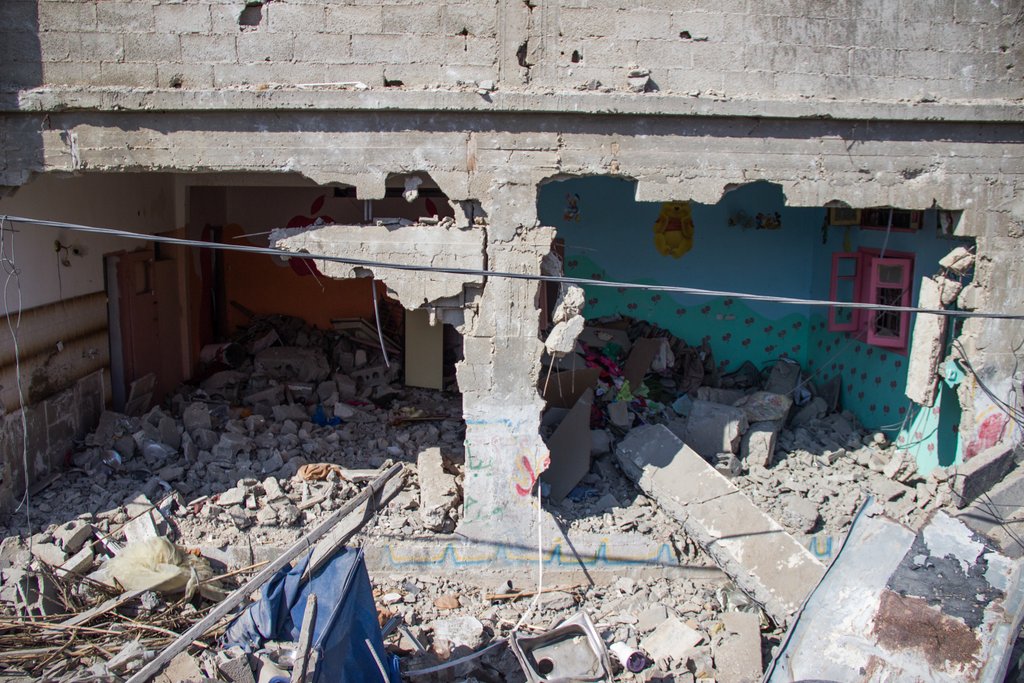
The back of the Abu Odeh house, where two rooms on the ground floor were destroyed. August 12, 2014
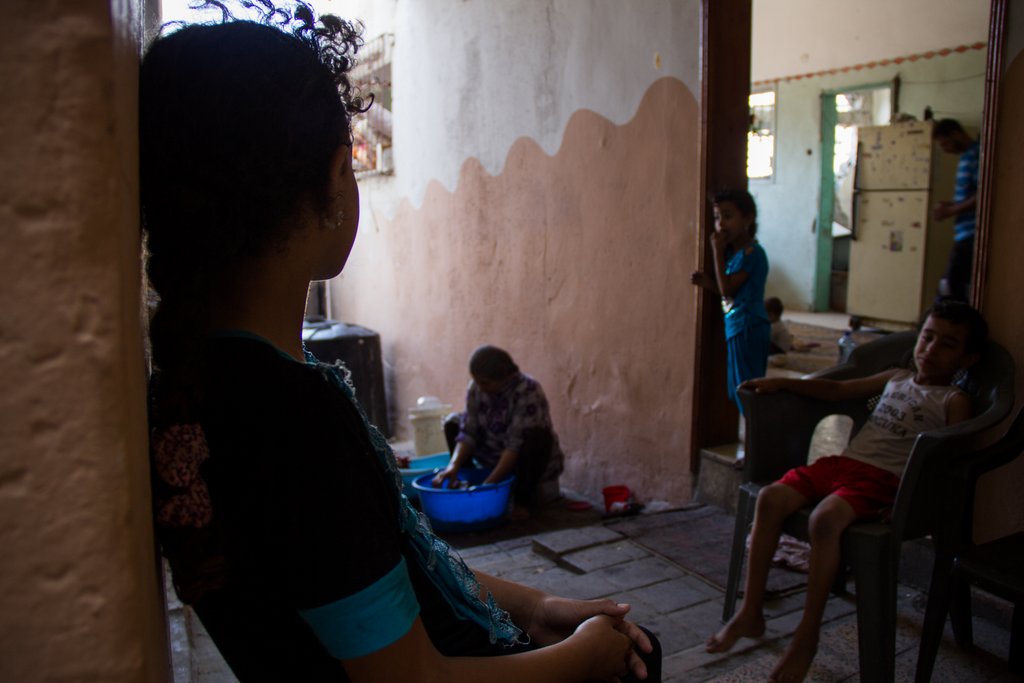
Yasmin Abu Odeh, 9 years old, rests against the wall, watching her grandma washing clothes. August 12, 2014
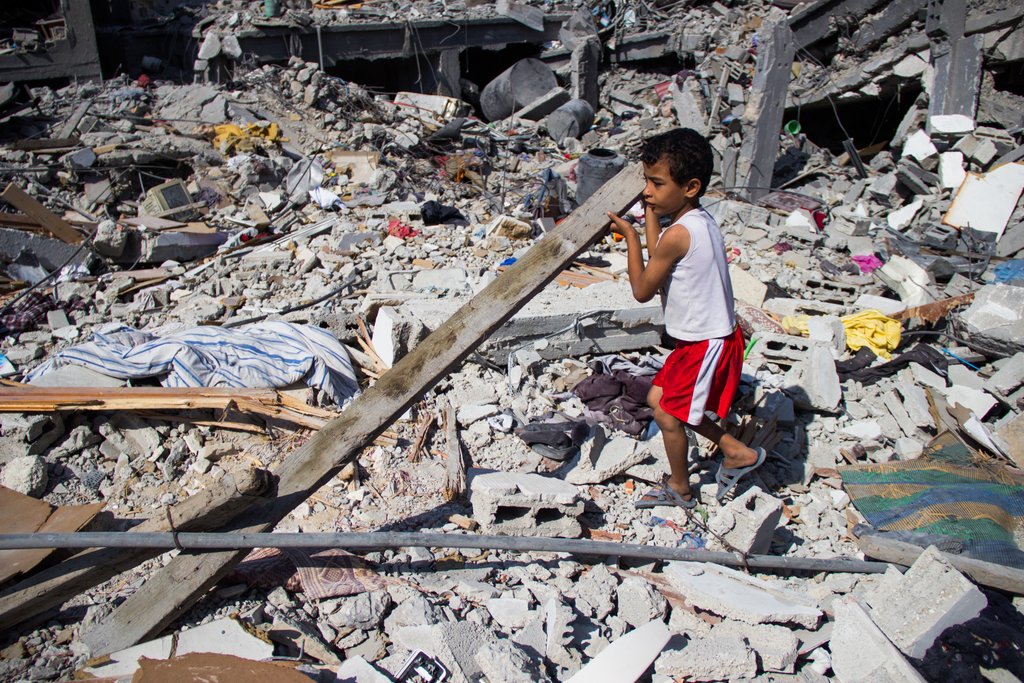
Nader Obu Odeh, 6 years old, gathers some wood from destroyed houses to help make a fire. August 12, 2014
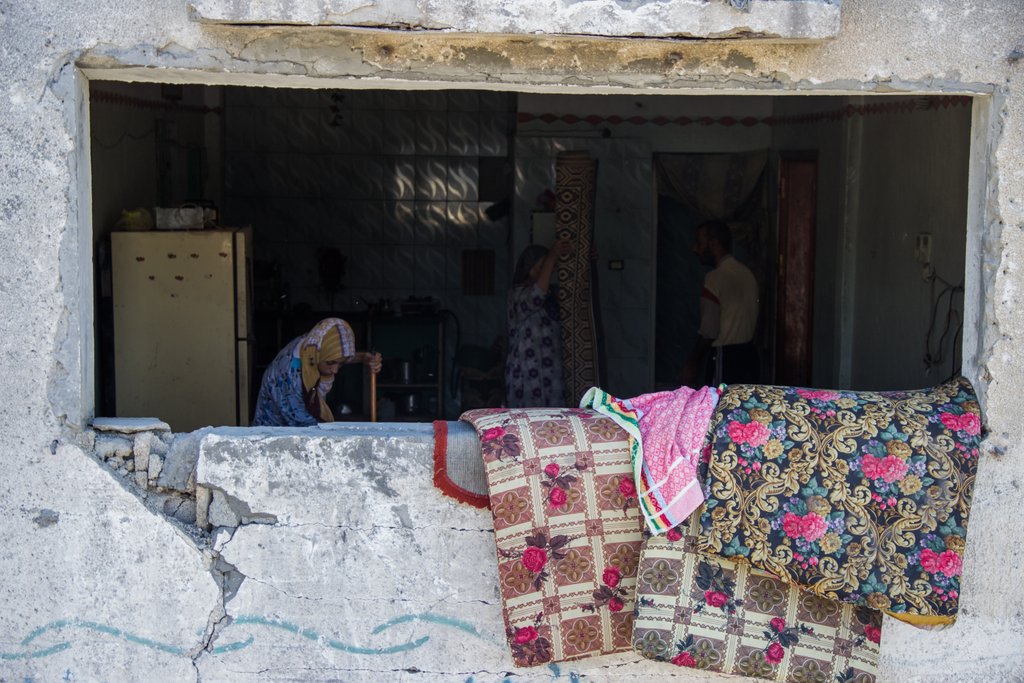
Abu Odeh family members help clean up the house so they can live there during the temporary seize-fire. August 12, 2014
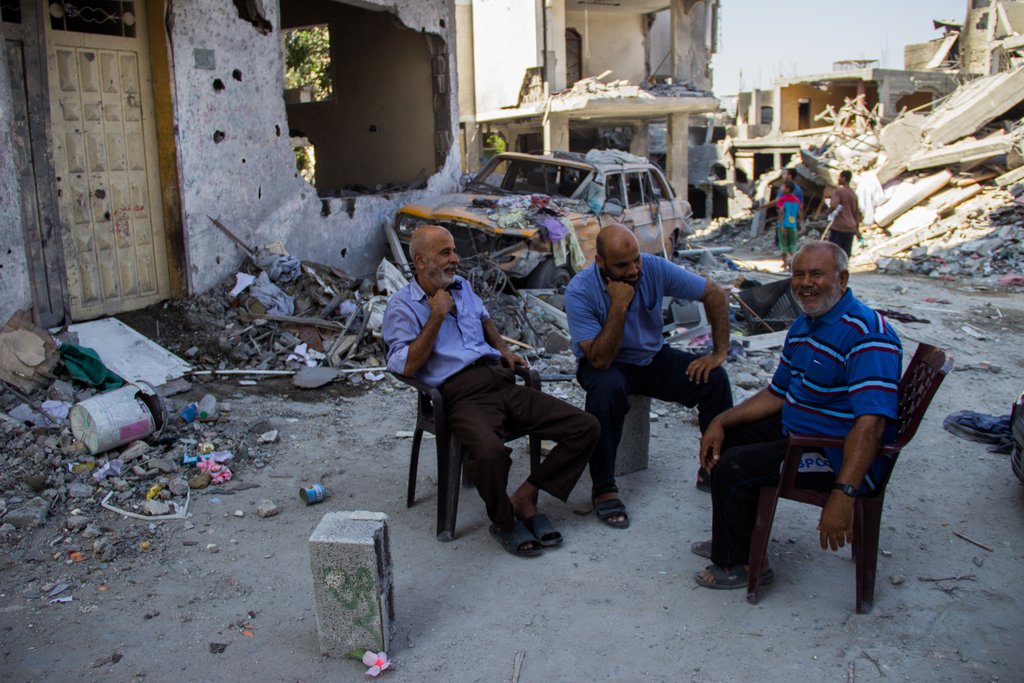
Abu Alaa sits with his neighbours exchanging jokes on the occupation army. August 12, 2014
